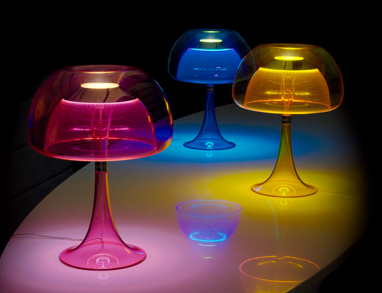(单词翻译:单击)

A nightlight may keep those monsters under the bed. But it may also open the door to the blues. Because a new study reveals that animals exposed to light all night long show signs of clinical depression.
开灯睡觉也许能让你减轻恐惧感,但也有可能让你变得抑郁消沉。一项新的研究表明,那些整夜暴露在光照条件下的动物显示出情绪低落消沉的迹象。
If you have access to electricity, you no doubt switch on a lamp, maybe even watch a little TV, after the sun goes down. But our bodies use cues about lightness and dark to regulate our hormones and of course our sleep cycles. So what might these extra photons be doing to our health?
如果有电,在天黑之后,你无疑会开上一盏灯,甚至会看上一会儿电视。而我们的身体会依据光线条件来调整内分泌,当然,还有睡眠。那么,这些多余的光照,会对我们的健康造成怎样的影响呢?
To find out, scientists housed mice in a room where the lights were always on. After three weeks, they found that mice who lived in the spotlight showed symptoms of depression, more so than mice who enjoyed eight hours of darkness at night. Interestingly, mice who could escape the light by ducking into a dark tube also escaped the worst of the depression. The findings were presented on October 21st at the Society for Neuroscience meeting in Chicago, and they'll be published in the journal Behavioural Brain Research in December.
为了搞清楚上述问题,科学家们让小白鼠住在一个总有光照的空间里。三周之后,他们发现这些小白鼠显现出情绪低落消沉的症状。与之相对的,另一组每天有八小时全黑条件的小白鼠则安然无恙。有趣的是,那些通过钻到管道中避免光照的小白鼠也躲过了一劫。这一发现10月21日发布于芝加哥举办的神经系统科学学会的年会上,也会刊载10月期的《行为大脑研究》杂志上。
So flip that light switch at your own risk. Because the artificial brightness that helps keep us up could also bring us down.
因此,为了你自己的健康,还是关上灯睡觉吧。人造的光亮给我们带来许多欢乐,却也让我们付出着代价。


